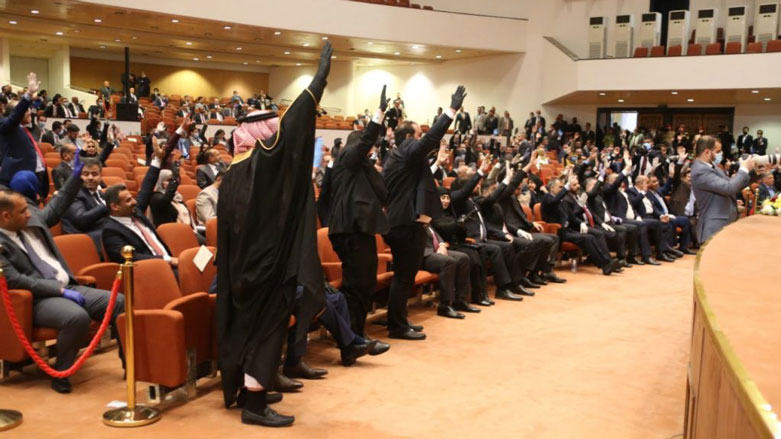UN envoy: 'No time to spare' for Iraq to complete forming new gov't

ERBIL (Kurdistan 24) – Hours after the Iraqi parliament voted to accept Mustafa al-Kadhimi as the country's new prime minister late Wednesday night, but still leaving seven of the 22 cabinet posts unfilled, the United Nation's envoy to the embattled nation released a congratulatory statement that wasted no time in urging parties to immediately come together to name the remaining ministers.
“The government faces an uphill battle, and there is no time to spare,” said Jeanine Hennis-Plasschaert, head of the United Nations Assistance Mission to Iraq (UNAMI) on Thursday.
“Confronting the economic crisis, further compounded by the COVID-19 pandemic and falling oil prices, is a top priority. But other long-standing challenges must also be tackled without delay. These include adequate public service delivery, fighting corruption, strengthening governance as well as justice and accountability.”
The vote by lawmakers in Baghdad ending a protracted, five-month-long political deadlock to form a successor government after the previous premier, Adil Abdul Mahdi, stepped down amid a mass protest movement that continues.
Read More: Mustafa al-Kadhimi voted in as Iraq’s prime minister
The cabinet posts that have yet to be filled, many of them highly sought-after by parties now no doubt in the throes of negotiating the outcome, are the ministers of oil, foreign affairs, justice, trade, culture, migration and displacement, and agriculture.
Hennis-Plasschaert urged “the complete formation of the Cabinet so that the new administration can swiftly move to address mounting security, social, political, economic and health challenges.”
Welcoming confirmation of Iraqi Prime Minister, UN Iraq urges complete formation of Cabinet to swiftly tackle mounting challenges#Iraq pic.twitter.com/LfVQITqxLf
— UNAMI (@UNIraq) May 6, 2020
In a separate statement released later that day, UN Secretary General António Guterres said he “encourages the swift completion of the formation of the government, including by appointing women to cabinet positions yet to be filled.”
He also called for “the implementation of meaningful reforms that make tangible improvements in people’s lives and strengthen Iraq’s democratic institutions.”
As prime minister, Kadhimi inherits a wide range of crises from the previous administration, notably the ongoing protest movement, the coronavirus pandemic, falling oil prices, an uptick in attacks by the Islamic State, and Erbil-Baghdad disputes.
Among the many congratulatory phone calls he received from around the world were those by Kurdistan Region officials and US Secretary of State Mike Pompeo, who informed the new leader that the United States was extending its sanctions waiver for Iraq’s import of electricity from Iran, according to a State Department spokesperson, “as a display of our desire to help provide the right conditions for success.”
Editing by John J. Catherine
